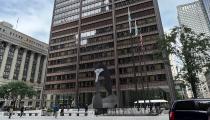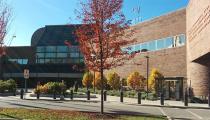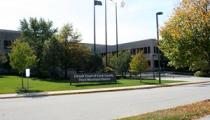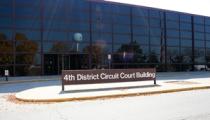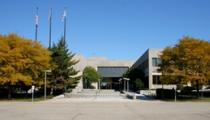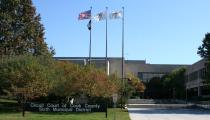Overview
Problem-Solving Courts combine intensive judicial supervision, with rigorously monitored rehabilitation services and accountability, with a team approach to decision-making to help adults with substance use and/or mental health disorders from becoming repeat offenders.
Problem-Solving Courts increase public safety and save money by reducing re-arrest and incarceration for many offenders. They also provide social benefits to participants and help them reintegrate back into their communities.
The Problem-Solving Courts team is led by the judge and include a prosecutor, defense counsel or public defender, probation officer, clinical case manager, Veterans Justice Outreach or social workers, substance use or mental health treatment providers, resource/treatment coordinator, project manager, law enforcement liaison and PSC director/coordinator.
There are currently 20 Problem-Solving Courts operating in the Circuit Court of Cook County.
Problem-Solving Courts, also known as specialty courts or therapeutic courts, seek to help low-level criminal defendants suffering from underlying mental health, social or substance abuse problems from becoming repeat offenders. Problem-Solving Courts achieve this goal by providing treatment and intensive supervision.
The Cook County Circuit Court has a countywide network of Problem-Solving Courts that includes:
With varying target populations, all Problem-Solving Courts seek to address the primary issues that contributed to the participant’s involvement in the judicial system. These issues are addressed with public safety in mind.
In order for candidates to be eligible for the Problem-Solving Court program, they must first meet certain legal and clinical criteria. Cook County Problem-Solving Courts are designed primarily to assist people who have committed non-violent felony crimes. However, some Problem-Solving Courts in the suburbs of Cook County accept misdemeanor cases.
Problem-Solving Courts coordinate efforts between members of the Court system and organizations outside of the Court system in order to guarantee that participants receive sufficient counseling. Team members from the Court system are: prosecutors, public defenders, probation officers, social workers, clinical case managers and other justice system affiliates. Team members from organizations outside of the Court system include: substance abuse and mental health treatment providers, community partners and VA representatives. A judge assigned to each specific Problem-Solving Court leads these teams.
The teams design and implement individualized treatment plans for participants, which include linkage to community-based services that offer intensive treatment, interventions and supervision.
Problem-Solving Court judges are personally involved in many aspects of this process, including: team building, staff meetings and status hearings. Specific roles and responsibilities are explicitly assigned, but, through a coordinated effort, a participant’s case and compliance with program rules are monitored.
All Problem-Solving Courts create specific goals for participants in favor of their advancement toward program completion. Participants appear in court regularly for status hearings in order for the judges to ensure ongoing interaction between participants and Court team members.
Problem-Solving Courts have positively affected the lives of participants and people directly and indirectly connected to them. Among these positive effects is the significant reduction of incarceration costs and recidivism rates of Problem-Solving Court participants.
For additional information, please contact:
Kelly Gallivan-Ilarraza
Director of Problem-Solving Courts
kelly.gallivanilarraza@cookcountyil.gov
Chicago, Illinois 60608
Judges Information
| Judge | Assignment | Primary Location | Phone |
|---|---|---|---|
| Marisie, Jill C. Circuit Judge Presiding |
Problem-Solving Courts Third Municipal District - Rolling Meadows | Rolling Meadows Courthouse
Courtroom 202
|
(847) 818-2287
|
| Walsh, Neera Associate Judge Supervising |
Criminal Division, Problem-Solving Courts | George N. Leighton Criminal Courthouse
Courtroom 400
|
(773) 674-3042
|
| Burns, Charles P. Circuit Judge |
Criminal Division, Problem-Solving Courts | George N. Leighton Criminal Courthouse
Courtroom 402
|
(773) 674-3208
|
| Cataldo, Joseph M. Associate Judge |
Problem-Solving Courts Third Municipal District - Rolling Meadows | Rolling Meadows Courthouse
Courtroom 109
|
(847) 818-2287
|
| Gemskie, Michele A. Associate Judge |
Problem-Solving Courts Second Municipal District - Skokie | Skokie Courthouse
|
(847) 470-7500
|
| Hill, Stanley L. Associate Judge |
Problem-Solving Courts Fourth Municipal District - Maywood | Maywood Courthouse
|
(708) 865-6060
|
| Hood, Michael Associate Judge |
Criminal Division, Problem-Solving Courts Second Municipal District - Skokie | Skokie Courthouse
Courtroom 209
|
(847) 470-7500
|
Additional Locations
Chicago, Illinois 60602
Rolling Meadows, Illinois 60008
Maywood, Illinois 60153
Bridgeview, Illinois 60455
Markham, Illinois 60428

